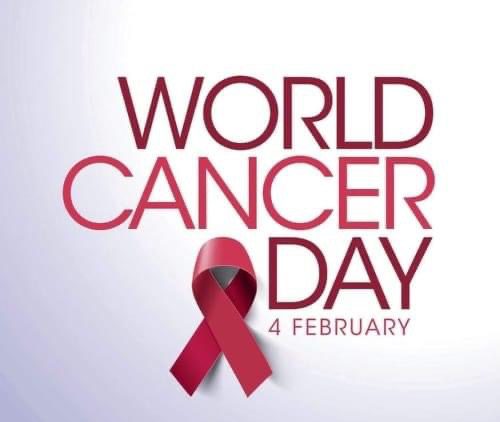WorldCancerDay.
IBEX NEWS, Shimla
World Cancer Day is a global healthcare event for the awareness of cancer, which has been commemorated on February 4th of every year for the past 23 years (since 2000) with the aim of spreading awareness and educating people about its detection, treatment, and prevention.

On this day, people from various international and local organisations all over the world unite to raise awareness about cancer and the need for better screening, diagnostic tools, earlier diagnosis and advanced treatment options.
World Cancer Day 2023 Theme
This year 2023, the World Cancer Day theme is “Close the Care Gap,” which is a continuation of the 2022 theme and will last till 2024 (a 3-year campaign) with specified objectives for each year. It was expected that there would be more exposure and engagement in a multi-year campaign, as well as more opportunities to raise global awareness and have an impact.
Objective of World Cancer Day 2022 Theme:Realising the problem
For the first 12 months of the “Close the Care Gap” initiative, the focus was on understanding and recognising the challenges of cancer care globally.
Objective of World Cancer Day 2023 Theme:Uniting our voices and taking action
The second year (this year) focuses on building stronger alliances and new collaborations to unite the voices of like-minded people to make a powerful appeal.
Objective of World Cancer Day 2024 Theme:Together, we challenge those in power
The final year emphasise to bring attention to the higher authorities with regard to cancer prioritisation, developing creative strategies to confront inequity and allocating resources to create a just and cancer-free world.
Importance of World Cancer Day
Cancer is a condition in which some cells in the body develop uncontrollably and spread to other parts of the body. Globally, cancer is the leading cause of mortality, accounting for over one crore deaths in 2020. In India, the incidence rate was reported between 19 and 20 lahks (estimated) cases in 2022.Usage of Tobacco, prolonged consumption of alcohol, unhealthy food habits, lack of physical exercise, and exposure to air pollution are all risk factors for cancer.
Low and middle-income nations face a unique challenge in addressing the cancer risk caused by several chronic illnesses. In addition, these nations had shown poor cancer prognosis due to a lack of education, delayed diagnosis, and low access to affordable treatment. In developing countries, too, the lack of cancer awareness leads to delay in diagnosis. A study reported in 2020, was conducted in four major centres in India, where the majority of cancer patients seek treatment for the first time only when they are in their advanced stages. The literacy rate and low income greatly influence cancer awareness. In India, people with higher incomes and literacy levels were more aware of cancer than others.
To conclude, general awareness of cancer screening, prevention, and treatment is low among the Indian and global populations, especially in low and middle-income with poor literacy rates leading to an increase in cancer prevalence, and there is an urgent need to fill the lacunae with proper education. World Cancer Day brings attention to how important it is to prevent cancer, find it early, and treat it.
History of World Cancer Day
On February 4th, 2000, the World Summit Against Cancer for the New Millennium was held in Paris, marking the beginning of World Cancer Day. The introduction of World Cancer Day is a key component of the Paris Charter, which also seeks to advance cancer research, prevention, patient care, awareness, and worldwide mobilisation.
Prevention of Cancer
Although many forms of cancer are not preventable, some people will still be diagnosed with cancer even if they lead a healthy lifestyle. Cancer risk can be lowered in a number of ways, including:
- Consuming a nutritious diet high in fruits and vegetables and low in processed foods and red meat
- Regular exercise and maintenance of a healthy weight
- Abstaining from the use of tobacco products
- Minimum alcohol consumption
- Taking precautions against ultraviolet rays include using sunscreen and wearing protective clothing
- Participating in the recommended cancer screenings on a regular basis
- Avoiding exposure to harmful chemicals in the environment
- Vaccination against virus human papillomavirus (HPV) that can cause cancer



















